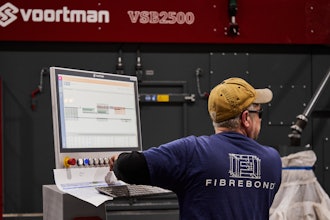WASHINGTON (AP) -- Microsoft Corp., the Hewlett-Packard Co. and other multinational corporations have avoided billions in U.S. taxes by shifting profits offshore and taking advantage of weak, ambiguous sections of the tax code, Senate investigators said Thursday.
Microsoft used "aggressive" transactions to shift assets to subsidiaries in Puerto Rico, Ireland and Singapore, in part to avoid taxes, said the report by the Senate Permanent Subcommittee on Investigations. In one example, the report said that the Washington state-based software giant saved $4.5 billion in taxes from 2009 to 2011 by shifting assets to Puerto Rico, a U.S. commonwealth that offers numerous tax breaks to businesses.
The report, released at a subcommittee hearing, also said that since at least 2008, HP has used complex offshore loan transactions worth billions of dollars to avoid paying taxes while using the money to run its U.S. operations. The mammoth high tech company has its headquarters in Palo Alto, California.
"The bottom line of our investigation is that some multinationals use our current tax system to engage in shams and gimmicks to avoid paying the taxes they owe," said Sen. Carl Levin, the Democrat who chairs the subcommittee.
Executives of both companies said they have complied with American tax laws.
"I can assure the committee that HP takes seriously its obligations to accurately follow accounting principle and to pay taxes that it owes," Lester D. Ezrati, HP's senior vice president for taxes, told the panel.
The report was released weeks before presidential and congressional elections in which one of the noisiest partisan clashes is over whether — and how — to raise revenues to help reduce federal deficits. Many Democrats have complained that the government is missing out on collecting billions of dollars because companies are stashing profits abroad, thus avoiding taxes. Republicans want to cut the corporate tax rate of 35 percent and ease the tax burden on money that U.S. companies make abroad, which they say would encourage them to invest at home.
President Barack Obama has proposed using the tax code to encourage companies to move jobs back to the U.S. and discourage them from shifting jobs abroad. Many in both parties say they want to overhaul the entire tax code, but there are vast differences in how they would do so.
The investigators' report, based in part on material subpoenaed from multinational companies, said more than 1,000 such companies reported having more than $1.5 trillion overseas. U.S.-based companies can avoid taxes on much money earned abroad by asserting that they have invested those funds offshore or plan to do so.
"Many of these don't look great but they're legal," Sen. Tom Coburn, the subcommittee's top Republican, said of the practices the report detailed. He said the findings call "blatantly and honestly for tax reform in this country."
The report said ways that companies reduce their tax liabilities include:
—Selling or licensing assets developed in the U.S. to offshore subsidiaries for less than they are worth, in effect minimizing the U.S. parent company's tax bill and shifting profits to lower-tax jurisdictions. The report said Microsoft sold some intellectual property rights to subsidiaries in Ireland and Singapore for billions of dollars less than those subsidiaries earned from the assets — in effect shielding that money from U.S. taxes.
—Government regulations, weak IRS enforcement and short-term laws that let multinational companies skirt requirements that they pay taxes on royalties, interest or dividend income earned abroad by subsidiaries. A 1997 Treasury Department rule letting companies decide the type of legal entity they want to be for tax liability purposes, which "opened the floodgates" for such firms to avoid taxation, Levin said. He said in 2009 through 2011, Apple Inc. avoided $35 billion taxes on such earnings, Google $24 billion and Microsoft $21 billion.
—Though U.S. based companies are supposed to pay taxes on money they borrow from a foreign subsidiary, U.S. tax laws allow exceptions, including for loans repaid within 30 days. Levin said HP used such loans to fund its U.S. payroll and repurchase its own stock.
Levin said some multinationals "have effectively and systematically been bringing those offshore profits back by the billions for years through loan schemes like the one described here, and doing so without paying taxes."
Microsoft operates in foreign markets "in order to compete and succeed as a company," William J. Sample, the company's vice president for worldwide tax, told the subcommittee. He said while 52 percent of its revenue comes from the U.S., its foreign revenue is growing faster than those earned at home.
Sample said the company has made "very limited use" of tax code provisions that allow companies to avoid paying taxes on loans from foreign subsidiaries and some other transactions.
"Microsoft's tax results follow from its global business," Sample told the senators. "In conducting our business at home and abroad, we comply with U.S. and foreign tax laws."






















